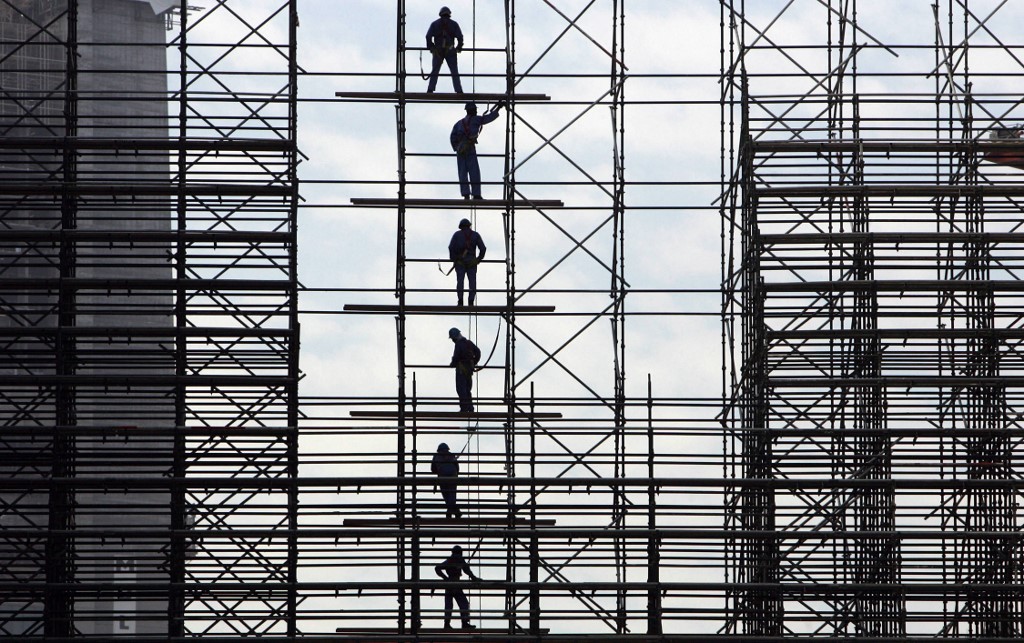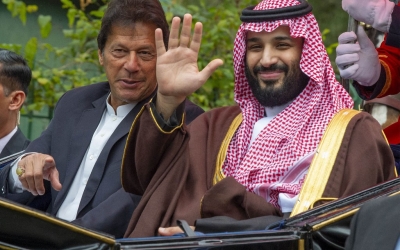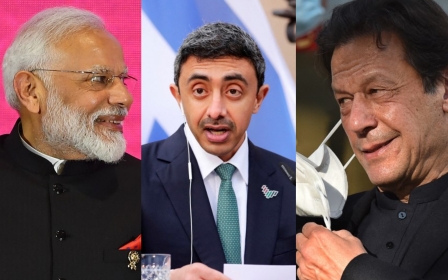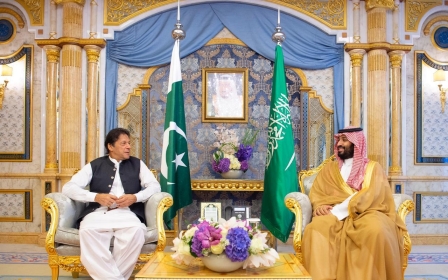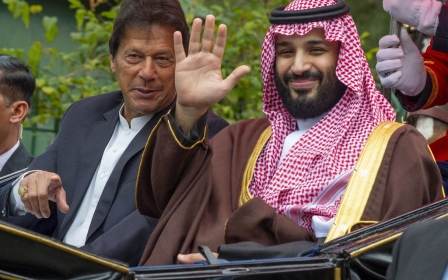What is behind the Pakistan-UAE detente?
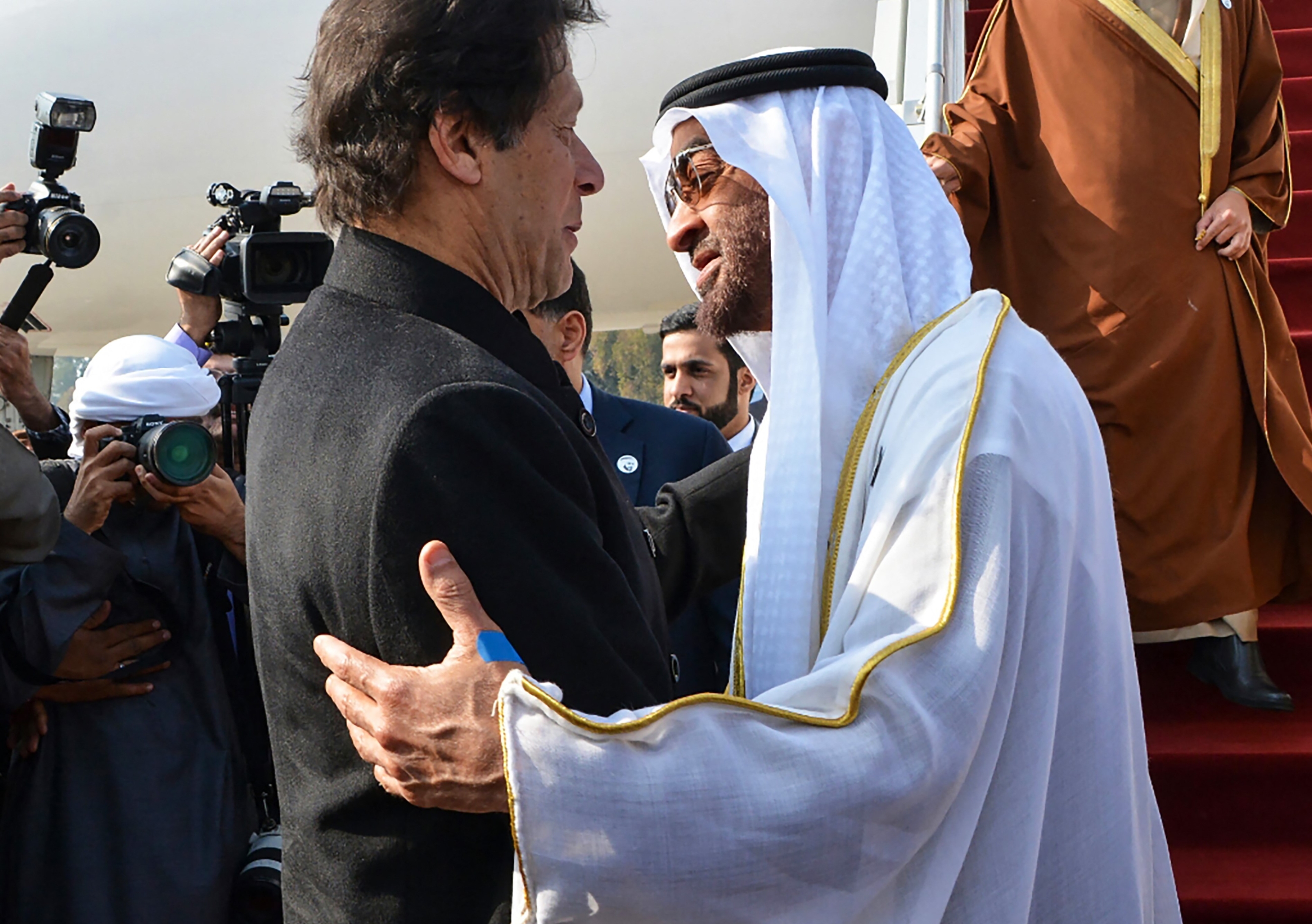
Pakistani Foreign Minister Shah Mahmood Qureshi recently concluded a three-day visit to the UAE, just as the two countries mark 50 years of bilateral relations.
At the same time, the Emirati envoy to Washington recently confirmed that the UAE has been mediating between India and Pakistan towards a more “functional” relationship. On 25 February, the two states issued a sudden reaffirmation of their ceasefire agreement on the Kashmir border.
Despite their differences, both Pakistan and the UAE have much to gain from affable ties based on practicalities
The foreign minister’s visit this month ties in with Pakistan’s new economic vision, under which reaching out to the Gulf states appears to be a high priority. Following his UAE trip, Qureshi went on to Iran and Turkey, and he is planning to visit Qatar soon.
During his three-day trip to the UAE, Qureshi engaged with dignitaries and members of the Pakistani diaspora, and discussed ways of enhancing bilateral cooperation, including in the areas of trade and investment. At the end of the visit, the UAE announced it would roll over a $2bn loan to Pakistan it had provided in 2019.
The trip offered a glimmer of hope that the recent slump in Pakistan-UAE relations may finally be coming to a close. Relations in the political, strategic and economic arenas are premised on the commonality of the two states’ religion and culture.
Aid and remittances
The UAE has participated in various aid initiatives to Pakistan over the years, including the UAE Pakistan Assistance Program, launched in 2011, which focuses on the construction of schools, roads and bridges, alongside improvements in the health sector.
The UAE is one of the largest contributors to Pakistan in terms of foreign direct investment, which is mainly concentrated in the business, banking, telecom and energy sectors. High-level military meetings also take place from time to time.
Pakistan has the singular distinction of establishing the UAE Air Force after its independence in 1971. Most importantly, the Emirates are home to the second-largest Pakistani diaspora community in the Gulf, with around 1.6 million expats. Remittances from the UAE - around $4.6bn in a typical year - are very important for Pakistan’s economy.
But in 2015, when Pakistan refused to send its troops to fight in the Saudi-led coalition’s war in Yemen, relations took a nosedive, with the UAE harshly rebuking Pakistan for the lack of support. The situation also provided an opening for greater India-UAE relations.
Things continued to worsen as Pakistan remained neutral upon the eruption of the Qatar-Gulf crisis in 2017. Ties were further strained amid Pakistan’s criticism of the Gulf countries’ inaction over Indian atrocities in Kashmir, and the UAE’s recent rapprochement with Israel.
Foothold in the Gulf
Last November, the UAE banned work visas for Pakistani nationals. Although the move was attributed to the Covid-19 pandemic, some have speculated as to the underlying geopolitical factors, such as Israel’s increasing ties with Gulf nations. There have also been reports of increasing discrimination faced by Pakistanis in the UAE.
In India, meanwhile, the UAE sees an ally not only in economic terms, but also one that forms a perfect nexus with Israel.
At the same time, avenues for Pakistan’s relevance in the Gulf are fast disappearing. Gone are the days when being the sole Muslim country with nuclear-power status would afford Pakistan a certain stature. Economics appears to be the only sustainable route, which is why Pakistan is aiming to maintain a foothold in the Gulf by increasing trade and investment ventures. Qureshi’s focus on the Pakistani pavilion at the Dubai Expo is evidence of this.
But as the saying goes, there is no free lunch. For the UAE, Pakistan offers opportunities for investment, fitting with its policy of reducing dependence on oil. Abu Dhabi has repeatedly expressed its willingness to invest in the China-Pakistan Economic Corridor, focusing on small and medium enterprises.
Moreover, a master plan for a proposed oil megacity in Pakistan’s Gwadar district is reportedly underway, pointing to more investment opportunities for the UAE.
Turn to Doha
In this context, it is important to note that the UAE’s role as a regional power in the Gulf is increasingly being overshadowed by Qatar, which has excellent relations with both India and Pakistan. In February, Doha and Islamabad signed a 10-year liquified natural gas agreement, and Pakistan’s dynamic relations with Qatar have been crucial in facilitating talks between the US and the Taliban as part of the Afghanistan peace process.
Bilateral relations in contemporary times are based on the mutuality of benefits, and are premised on economics to ensure sustainability. Despite their differences, both Pakistan and the UAE have much to gain from affable ties based on practicalities.
The views expressed in this article belong to the author and do not necessarily reflect the editorial policy of Middle East Eye.
Middle East Eye propose une couverture et une analyse indépendantes et incomparables du Moyen-Orient, de l’Afrique du Nord et d’autres régions du monde. Pour en savoir plus sur la reprise de ce contenu et les frais qui s’appliquent, veuillez remplir ce formulaire [en anglais]. Pour en savoir plus sur MEE, cliquez ici [en anglais].



